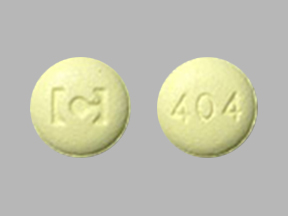
Tiagabine Coupons & Savings Card – Discount Prices from $44.87
Generic for: Gabitril
Tiagabine, marketed as Gabitril, is prescribed as an additional therapy to help manage focal (partial-onset) seizures, particularly when these seizures are not effectively controlled by other medications. Suitable for adults and children aged 12 years and older, tiagabine functions as an antiepileptic or anti-seizure medication. While its precise mechanism is not fully understood, it is known to increase the levels of gamma-aminobutyric acid (GABA) in the brain, a chemical that helps to calm nerve activity. By promoting a calming effect on brain activity, tiagabine aids in reducing the frequency of seizures. It is crucial to consult with a healthcare provider before starting this medication to ensure it is appropriate for your condition. Please note that the use of tiagabine for non-epileptic conditions may lead to serious reactions, including the onset of seizures in individuals who have never previously experienced them. Always discuss any concerns or potential side effects with your doctor.
Our coupons are free to use. Before paying, show the pharmacist your Tiagabine savings card to get your free discount. Use our filters below to edit the prescription box to match your needs. The Tiagabine prices will update based on your prescription needs. Above our Tiagabine coupons, you can change your location to see pharmacy prices and costs in other areas. We're here to help you buy Tiagabine at the lowest price with our prescription discount card.
My prescription
Edit
4MG, Tiagabine (60 Tablets)
Select pharmacy

CVS
$44.87
COUPON PRICE
Walgreens
$112.77
COUPON PRICE
Albertsons
$128.64
COUPON PRICE
Walmart
$211.91
COUPON PRICETiagabine savings card
Show this card to your pharmacist
CVS
$44.87
BIN
ID
PCN
GRP
019876
LHDB4AF68A
CHIPPO
LHX
Powered by
Tiagabine, marketed as Gabitril, is prescribed as an additional therapy to help manage focal (partial-onset) seizures, particularly when these seizures are not effectively controlled by other medications. Suitable for adults and children aged 12 years and older, tiagabine functions as an antiepileptic or anti-seizure medication. While its precise mechanism is not fully understood, it is known to increase the levels of gamma-aminobutyric acid (GABA) in the brain, a chemical that helps to calm nerve activity. By promoting a calming effect on brain activity, tiagabine aids in reducing the frequency of seizures. It is crucial to consult with a healthcare provider before starting this medication to ensure it is appropriate for your condition. Please note that the use of tiagabine for non-epileptic conditions may lead to serious reactions, including the onset of seizures in individuals who have never previously experienced them. Always discuss any concerns or potential side effects with your doctor.
Our coupons are free to use. Before paying, show the pharmacist your Tiagabine savings card to get your free discount. Use our filters below to edit the prescription box to match your needs. The Tiagabine prices will update based on your prescription needs. Above our Tiagabine coupons, you can change your location to see pharmacy prices and costs in other areas. We're here to help you buy Tiagabine at the lowest price with our prescription discount card.
More prescriptions for epilepsy
coupons from$19.44Save 90%
coupons from$801.63Save 21%
coupons from$80.19Save 79%
coupons from$37.79Save 77%
coupons from$230.88Save 86%
coupons from$34.55Save 81%
coupons from$18.08Save 78%
coupons from$13.18Save 90%
More prescriptions for epilepsy
Trileptal Save 90%coupons from $19.44
Elepsia Xr Save 21%coupons from $801.63
Qudexy Xr Save 79%coupons from $80.19
Ethosuximide Save 77%coupons from $37.79
Oxtellar Xr Save 86%coupons from $230.88
Epitol Save 81%coupons from $34.55
Phenytoin Infatabs Save 78%coupons from $18.08
Depakote Save 90%coupons from $13.18
Tiagabine dosage forms
Use our Tiagabine 2MG coupon with prices from $31.58 for 30 Tablets. You can also use our Tiagabine 4MG coupon with prices from $44.87 for 60 Tablets. We have a Tiagabine 4MG coupon with prices from $31.58 for 30 Tablets. You can use our Tiagabine 12MG coupon with prices from $74.39 for 30 Tablets.
Dosage Quantity Price from Per unit 2MG 30 Tablets $31.58 $1.05 4MG 60 Tablets $44.87 $0.75 4MG 30 Tablets $31.58 $1.05 12MG 30 Tablets $74.39 $2.48 16MG 30 Tablets $92.86 $3.10
| Dosage | Quantity | Price from | Per unit |
|---|---|---|---|
| 2MG | 30 Tablets | $31.58 | $1.05 |
| 4MG | 60 Tablets | $44.87 | $0.75 |
| 4MG | 30 Tablets | $31.58 | $1.05 |
| 12MG | 30 Tablets | $74.39 | $2.48 |
| 16MG | 30 Tablets | $92.86 | $3.10 |
